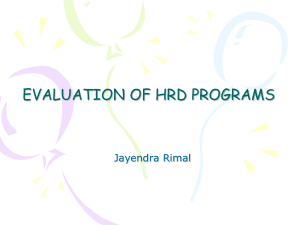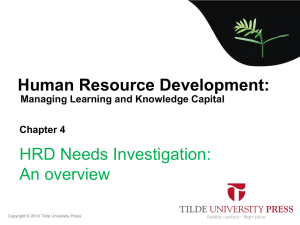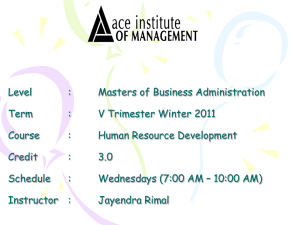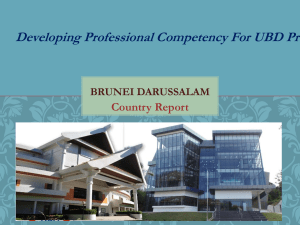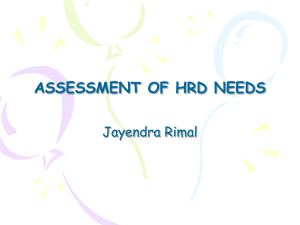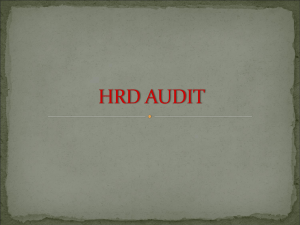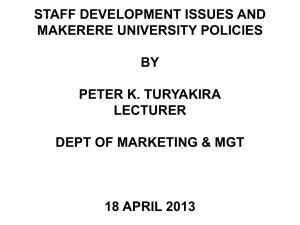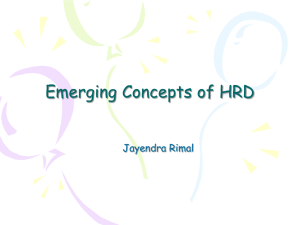HRD Audit
advertisement
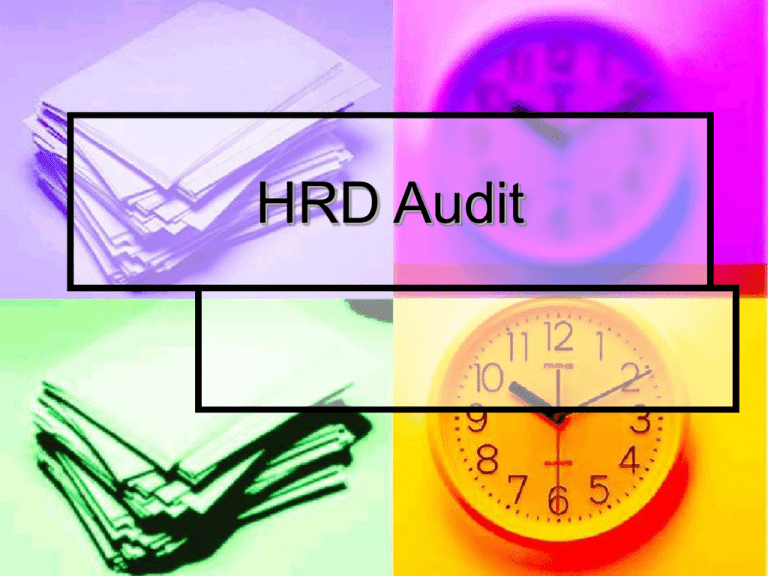
HRD Audit What is HRD? HRD is any process or activity that, either initially or over the longerterm, has the potential to develop adults work-based knowledge, expertise, productivity, & satisfaction, whether for personal or group/team gains or for the benefit of an organisation, community nation or ultimately the whole humanity - Mclean & Mclean Competence Building Commitment Building •Culture Building What ? HRD Audit is like an annual health check-up, it plays a vital role in instilling a sense of confidence in the Management and the HR functions of an organisation HRD Audit HRD Audit is a comprehensive evaluation of the existing HRD Structure, Strategies, Systems, Styles, Skills / Competencies & Culture and their appropriateness to achieve the short-term and long-term goals of the organisation. HRD Audit & HR Audit HRD Audit is evaluation of only few activities :•Strategies, •Structure, •Systems, •Styles •Skills & Competencies •Culture HR Audit is a comprehensive evaluation of the entire gamut of HR activities :•HR Cost •HRD activities •Health, Env. & Safety •Legal Compliance •Quality •Compensation & Benefits How ?... In HRD Audit the skills, styles, systems, strategies, structure is studied and analysed using a variety of methodologies like –interviews, (Individual and group, Top Management, Line Managers, HRD Staff, Workmen and others) –questionnaires, –observations, –available records, –workshops etc. This evaluation helps align the HR processes with business goals. Why HR audits? To make the HR function business-driven. Change of leadership. To take stock of things & to improve HRD for expanding,diversifying, & entering into a fast growth phase For growth & diversification For promoting professionalism among employees & to switch over to professional Management To find out the reasons for low productivity & improve HRD strategies. Dissatisfaction with a particular component. To become employer of choice Role of HRD Audit in Business Improvements Improvements in HRD systems •Increased focus on human resources and human competencies •Better recruitment policies and more professional staff •More planning and more cost effective training •Strengthening accountabilities through appraisal systems and other mechanisms HRD Score Card This model assumes that, Competent and committed employees are needed to provide quality products & services at competitive rates & ways that enhance customer satisfaction Components to be audited HRD systems maturity The HRD systems maturity assesses the extent to which various HRD subsystems and tools are well designed & are being implemented 1. The systems should be appropriate and relevant to business goals 2. It should focus on current and future needs of the corporation. 3. The HRD strategies and systems should flow from the corporate strategies 4. The systems should be well designed and should have a structural maturity. 5.They should be implemented well. The employees should be taking them seriously implemented well The employees should be taking them seriously and follow meticulously what has been envisaged in each system. The overheads of implementation should be low 6. The subsystems should be well integrated and should have internal synergy. 7. They should be adequate and should take care of the HRD requirements of the organisation subsystems are assessed and are, Manpower planning and recruitment Performance Management Systems Feedback and Coaching Mechanisms Training Career development and Succession planning Job-rotation OD Interventions HR Information Systems Worker Development methods and systems Potential Appraisal and Development
